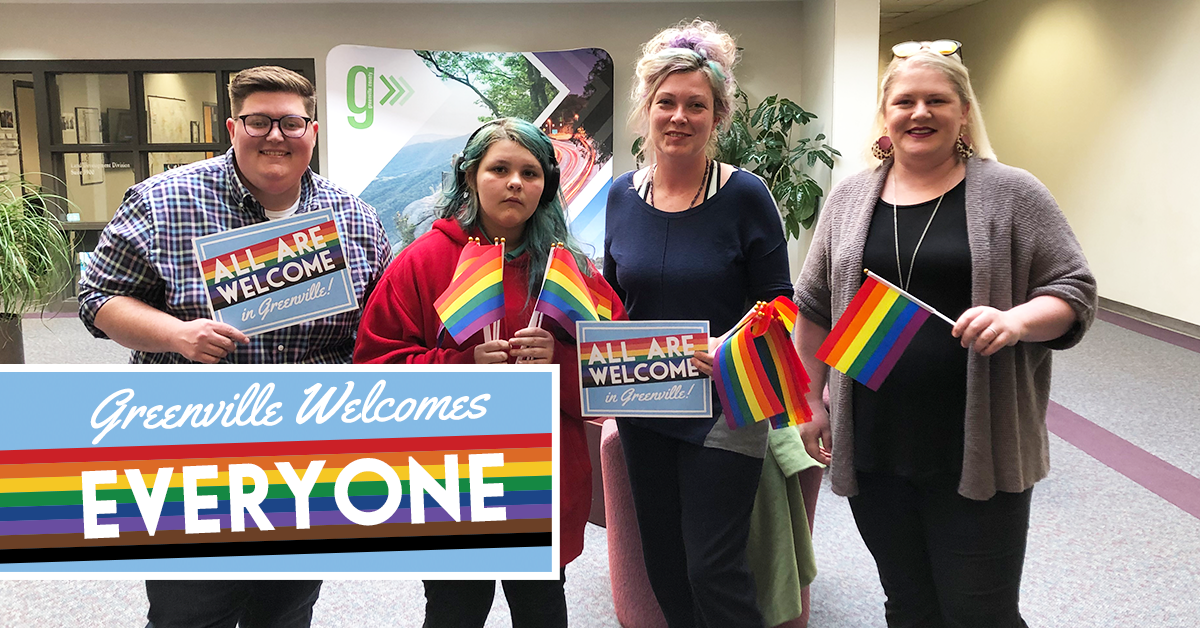UPDATE: We’ll have more soon – but following a first vote tonight where an anti-LGBTQ resolution was effectively repealed, the Greenville County Council took a second vote where the measure – which would sunset all resolutions older than four years, including a resolution from 1996 that defamed members of the local lesbian, gay, bisexual, and transgender community – appeared to narrowly not garner enough votes to pass. The 1996 resolution declares that LGBTQ people somehow violated the standards of the community and has long been seen as an antiquated form of government-sponsored animus. The Campaign for Southern Equality applauds advocates in Greenville who are pushing for an end to the resolution and will continue pushing for change in Greenville.
The Campaign for Southern Equality will keep y’all posted with updates on efforts to protect LGBTQ South Carolinians from discrimination

South Carolina is home to more than 137,000 LGBTQ people. In 2020 momentum has been building across the state for an end to anti-LGBTQ discrimination and a path to full LGBTQ equality:
- Last Wednesday, LGBTQ students in the state joined forces with advocacy and legal organizations to challenge the state’s anti-LGBTQ curriculum law in federal court.
- LGBTQ people and allies, including medical professionals and parents, have vocally opposed a new slate of anti-transgender legislation, including one bill that would prohibit doctors from providing medically needed care to transgender children under the age of 18 and another that would exclude transgender student athletes from participating in public school sports.
- A new report from the Campaign for Southern Equality’s Southern LGBTQ Health Survey specifically details the health disparities facing LGBTQ South Carolinians, including disproportionately poor mental health ratings and alarming rates of depression and suicidal ideation.
South Carolina is one of 29 states where LGBTQ people are not fully protected from discrimination. Despite this, a 2018 PRRI poll shows that 58% of South Carolinians support nondiscrimination laws related to housing, employment and public accommodations.
Locally, eight communities across the state have passed measures protecting LGBTQ people from discrimination in housing, employment, and/or public accommodations, providing protections to a very small portion of the state’s population.
South Carolina is home to a vibrant network of LGBTQ organizations spanning the Lowcountry to the Upstate. More than 20 organizations – many led by transgender people and people of color, and serving LGBTQ youth – have formed a new statewide coalition to build political power across the state.

